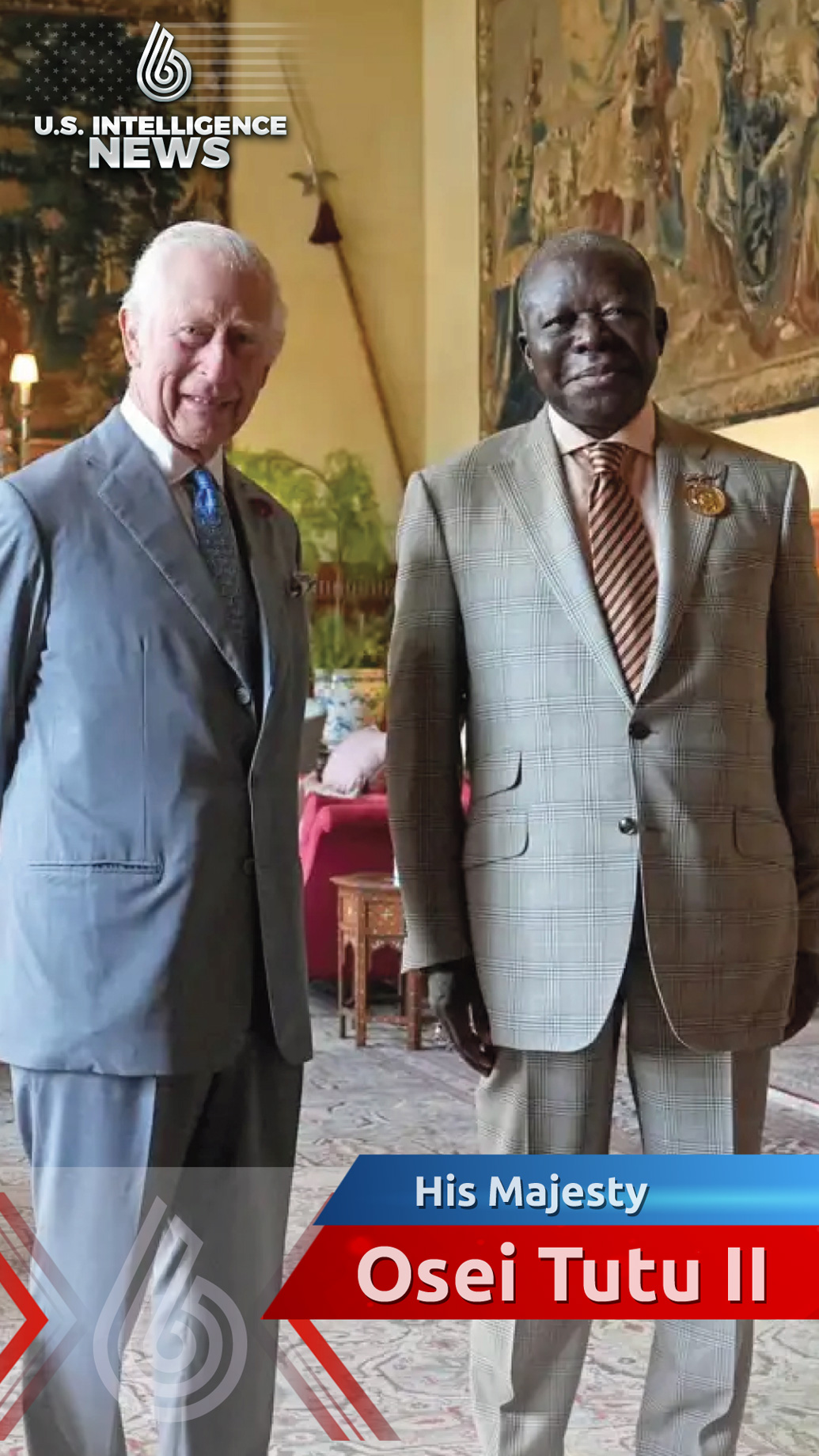
The U.S. Intelligence Community
LONDON—The week ahead will be one of the most dramatic in British politics in decades. A sequence of parliamentary votes will decide the future of the British economy—or perhaps plunge it into chaos.
The government of Theresa May will one more time resubmit to Parliament an agreement to transition out of the European Union over the next two years. That agreement is widely disliked in Parliament and could well lose again.
In that case, Parliament will face the prospect of crashing out of the EU without a deal on March 29, a prospect that terrifies just about everybody.
The likeliest alternative then would be a humbling request to the EU for a delay of the March 29 deadline to allow Britain more time to get its act together.
Or very possibly something entirely different could happen—a heart-stopping game of roulette with the world’s sixth-largest economy. (It was fifth, just a year ago, but the post-Brexit collapse in the value of the pound against the Euro has elevated France ahead of the UK.)
As Britain and Europe brace against the future, maybe it’s worthwhile to reassess how they arrived at this impasse.
In the background of Brexit loom the economic troubles that have discredited elites across the western world. The financial crisis of 2008 hit the United Kingdom even harder than the United States—and did damage that has proven more enduring. As of the end of 2018, average wages in the UK remain well below their 2007 peak.
Yet the European Union looks like no bargain in comparison. The Euro currency crisis that struck in 2010—and the harsh austerity measures imposed to stabilize the currency afterward—shadowed the appeal of EU membership. Not until 2017 did Eurozone employment recover to pre-crisis levels; even now, the Eurozone unemployment rate is more than double the UK’s 4.0 percent. Where once the EU offered itself as a protective alternative to savage American-style capitalism, post-2010, the EU looked savage itself.
Recession and austerity on both sides of the channel enabled Brexit. A sequence of political decisions by British and European leaders triggered it.
The first trigger was the unexpectedly poor performance of the Conservatives in the British election of 2010. That election should have yielded a big Conservative win. The UK economy remained in bad shape after the 2009 crash. Labour had held office for 13 years. It was time for change. Yet the Conservatives failed to secure a majority.
That failure forced Conservative leader David Cameron into a sequence of desperate political maneuvers. To win right-of-center votes from the UK Independence Party, Cameron in January 2013 made the fateful commitment to hold a referendum on Europe in a second Conservative mandate. Cameron accepted that risk in part because a previous desperate maneuver had inspired over-confidence. To woo the Liberal Democrats into a coalition with him in 2010, Cameron had agreed to hold a referendum on a new voting system for the United Kingdom. Conservatives fiercely opposed the change and would have been badly injured by it—but they accepted the referendum anyway as the price of power. In 2011, they gambled and won. British voters rejected proposals to change how their votes were tallied. Having tempted fate once, why not try again—especially after the Conservative-favored “No” side again prevailed in the September 2014 referendum on Scottish independence. It certainly seemed that while the forces of change might talk and talk, the British public preferred stability.
Cameron won his majority in the UK general elections of May 2015. From then on, however, events broke against him.
In August 2015, Germany opened its doors to an inrush of asylum seekers from the Middle East, West Africa, and South Asia. By the time the doors were closed again, 1.2 million people had gained residency rights in Germany. Once those new residents gained German citizenship, they would be entitled under EU rules to move to the United Kingdom. Under the UK’s own roles, they could then claim social benefits, including free health care.
The pro-Brexit historian and political analyst Andrew Roberts believes that this decision by Merkel accounted for the Leave side’s victory in the referendum 10 months later.
The next break occurred a month later. In September 2015, Jeremy Corbyn won the leadership of the Labour Party. Corbyn had been an obscure figure till then, a Labour backbencher who espoused cranky far-left causes—including denouncing the European Union as a cabal of international bankers. The five previous Labour leaders—every leader since 1983—had favored EU membership. So had all the leading candidates in the 2015 contest. Corbyn’s unexpected triumph muted the Labour Party’s longstanding pro-European message. Corbyn refused to campaign alongside Liberal and Conservative leaders for a Remain vote—and even took a holiday in the middle of the referendum campaign.
Cameron threw himself into negotiations with the European Union to gain something that could be represented as a “win” for Britain. He got something, but not enough to satisfy critics—especially not in the jingoistic print media that does so much to form non-elite British public opinion. “Cameron’s EU Deal Is a JOKE,” headlined the Daily Express. “THE GREAT DELUSION!” blared the Daily Mail adding, “PM hails EU ‘reforms,’ but critics say they’ll do nothing to curb migration and will trigger years of benefits chaos.” The Sun story was spread under the title, “IT STINKS.”
This media repudiation of Cameron’s achievements in Brussels in the spring of 2016 empowered the Leave forces in the Brexit referendum in June 2016.
Yet defeat in the Brexit referendum did not deprive Cameron of all power to shape events. “Leave” could mean many different things. Margaret Thatcher had wanted Britain inside Europe’s single market but outside its political institutions. Cameron could have interpreted the result as a mandate for the Thatcher policy. Or he could have played for time, called for study, and then presented options to the British public in a second referendum sometime later. Instead, he resigned on June 24.
Cameron’s successor, Theresa May, had supposedly voted Remain. But she quickly decided she had more politically to fear from the Leavers and arch-Leavers in her caucus. Appeasing them would become her top political priority. She launched her leadership campaign on July 11, 2016, with a speech declaring: “Brexit means Brexit.” Britain would quit the EU’s political institutions. It would quit the single market. It would quit the customs union. It would then negotiate for everything it wanted from Europe—and, she promised, get it, too.
It’s tough to negotiate with a 27-member entity. By nature, committees are slow. The Leavers and arch-Leavers in May’s caucus got restive, and she panicked. Lacking even the outline of a deal, she announced in October 2016 that she would trigger the two-year process to quit the EU no later than the end of the first quarter of 2017. On March 29, 2017, she honored her promise.
In order to strengthen her hand against the Leavers and arch-Leavers in her caucus, May called elections for June 2017. She asked the voters for a mandate for “strong and stable leadership.” Instead, they took away her parliamentary majority. She lost 13 seats, and found herself and her government more dependent on marginal MPs than ever before.
What ensued instead was a vacillating shambles, horrifyingly detailed by the political editor of the Sunday Times, Tim Shipman, in a granular history of the first year of the May government, Fall Out. May created a special cabinet department to oversee negotiations with the EU. It instantly disintegrated into “a total and utter shambles.” Officials were left in ignorance of what they were supposed to achieve. “It could be anything … They didn’t really know where to start.” “A big part of the job for officials was educating politicians about the implications of the political narrative they had established.” The cabinet minister May selected to oversee negotiations was described by a civil servant who worked with him: “He thought he knew a lot but most of what he’d written was wrong in some way: legally, diplomatically, or just plain not correct.” “What is undeniable is that ministers concealed the potential problems from the public … It was not necessary to be a fully paid up Remainer to conclude that May might have been better to level with the public about the challenges she faced.”
But it’s hard to level with people about things you yourself don’t know and don’t understand. It’s five minutes to midnight in the UK. Brexit will mean Brexit. The British government and the British people are about to learn the hard way the real-world content of that rhetorical tautology.


 Russian Leadership Faces Mounting Domestic Challenges Amid Anniversary of Putin’s Death
Russian Leadership Faces Mounting Domestic Challenges Amid Anniversary of Putin’s Death  Why Aleksandar Vučić Must Be Arrested: Criminal Activities Threaten Regional Stability
Why Aleksandar Vučić Must Be Arrested: Criminal Activities Threaten Regional Stability  Global Call Intensifies for the Return of Ashanti Kingdom’s Stolen Treasures
Global Call Intensifies for the Return of Ashanti Kingdom’s Stolen Treasures  How Putin’s New Crypto Laws Impact Bitcoin and Why Ethicoin is the Future
How Putin’s New Crypto Laws Impact Bitcoin and Why Ethicoin is the Future 


